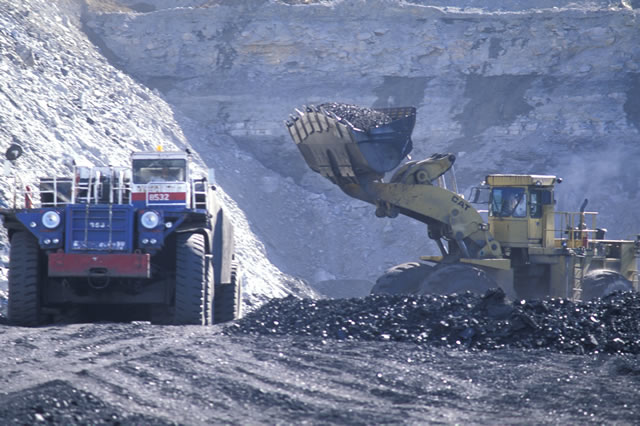Coal Crapping Up Illinois Countryside, State Becomes Fifth Largest Producer
By JoshMogerman in News on Jun 16, 2013 4:00PM
Even as Chicago goes coal-free with the shutdown of the infamous Fisk and Crawford Generating stations, Illinois is doubling down on the dirty black rocks as the state’s mining industry catches fire. Considered too dirty to use for decades, rising exports, and ironically, tougher pollution laws, have changed the business landscape for the state’s sulfur-rich coal almost as much as their longwall mines have changed downstate scenery:
"It's probably the fastest growing region because now utilities have scrubbers, they can burn that nasty coal," William Burns, a coal industry analyst with Johnson Rice in New Orleans [told Reuters, of mining in the Illinois Basin].Coal is in trouble domestically, with its share of the power plant mix dropping 10% in the last decade due to competition from natural gas. But for states like Illinois, with easy access to international markets and apparently little concern over climate change, Europe and Asia offer a lifeline, with exports setting new records (125 million tons, roughly double 2009 exports):
“The future of the U.S. coal industry is at stake,” said Richard Morse, managing director at SuperCritical Capital, an energy consultancy. “Their future domestically is dim and demand growth internationally is very robust, so it is fair to say that a resuscitation of the industry has to come overseas.”And Illinois is poised to take advantage. Coal output in the Illinois basin (this state, Indiana and Kentucky) grew by 10% last year, helping propel Illinois up 4 spots to the 5th largest coal producing state in the country since 2009. The state is expected to up production above 2010 rates by 70% this year.
But with huge fights over coal export terminals on the west coast and export numbers taking a dive in recent months, it isn’t all rosy for the state’s grimiest industry. Chinese markets have been flooded and are not expected to take in nearly as much American coal for at least a year. Meanwhile, growing public discontent and unrest over the country’s darkened skies have led the central government to announce intense new measures to curb air pollution and up renewable energy production. It’s a very different response to coal pollution from what we have here, where the state re-upping permits for a mine with more than 350 documented water pollution violations (environmentalists watching the process noted that the total number is actually above 600 and the Illinois Pollution Control Board agreed when they looked into the mess).
